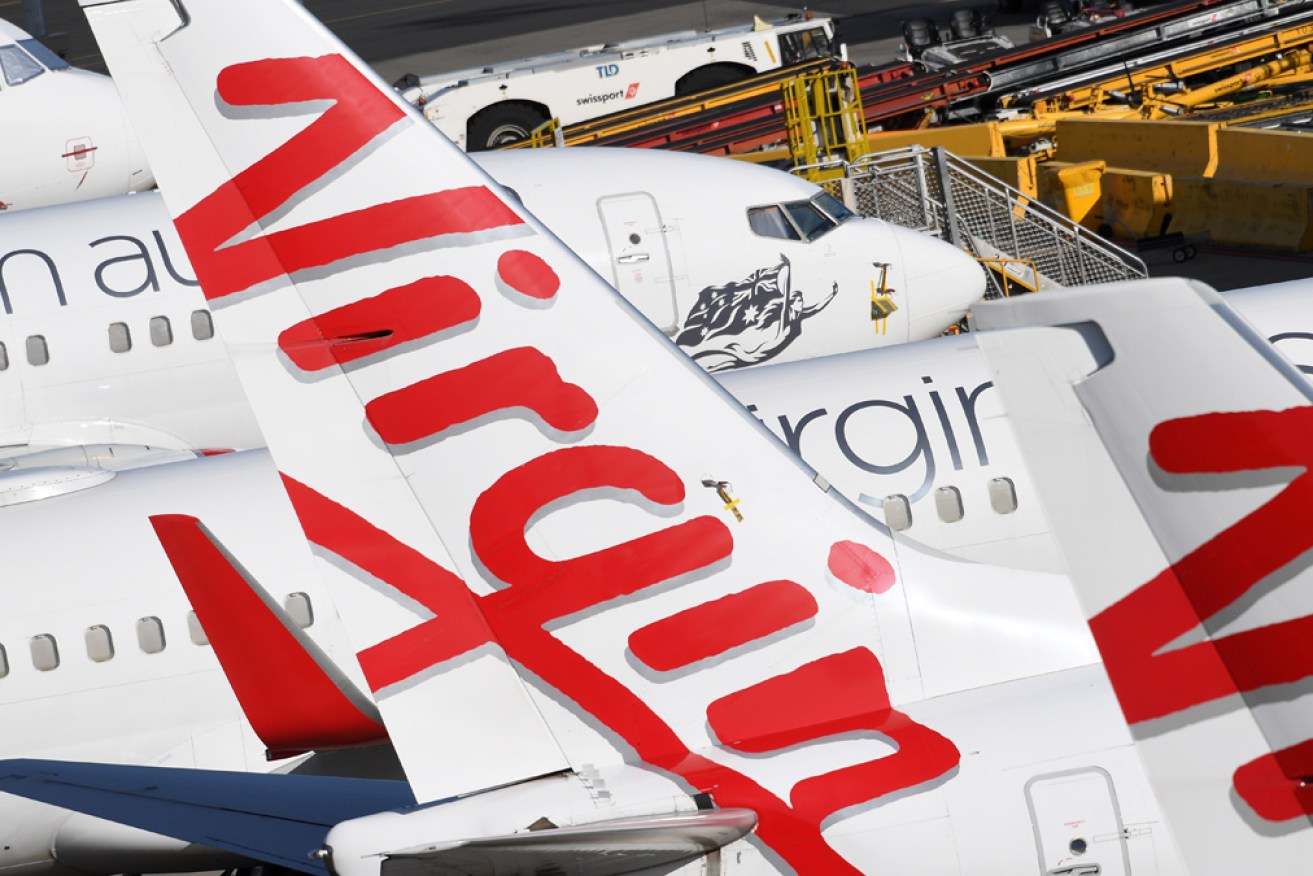Two bidders and two very different visions for the future of Virgin Australia


The sale of Virgin has reached its final stage. Photo: Getty
The battle for control of Virgin Australia has reached its final stage.
Five non-binding indicative proposals were received on Friday, and Deloitte has culled the shortlist down to the two US private equity firms.
Final bids are due on June 12 and the process is on track to have a binding agreement in place with the winning firm by June 30.
But with the two bidders come two visions of Virgin Australia.
In one corner, Bain Capital.
The local outpost of the US investment firm is headed by former Australian Olympic diver Mike Murphy – and it wants to make a splash.
Centred around a vision to “make flying fun again” in homage to its Virgin Blue predecessor, the firm has also brought in ex-Jetstar boss Jayne Hrdlicka to help strengthen its case to take over the airline.
In essence, it wants to make Virgin Australia a low-cost carrier.

Virgin staff wait to hear the future of their company. Photo: AAP
And in the other, Cyrus Capital Partners.
Little is known about the New York-based firm’s bid, but it has been reported that it intends to keep Virgin Australia as a full-service operator.
And the advisory firm has form. It was among the original backers of Virgin America when it was launched in the US by Sir Richard Branson.
After two days of examining the five shortlisted parties’ bids, administrator Deloitte was impressed by the two final contenders.
“Both Bain Capital and Cyrus Capital Partners are well funded, have deep aviation experience, and they see real value in the business and its future,” Deloitte administrator Vaughan Strawbridge said.
Mr Strawbridge said there would be speculation that the losing parties – believed to be Melbourne-based BGH Capital, Indigo Partners and Brookfield Asset Management – would partner with the remaining parties.
“That will, of course, be a matter for them,” Mr Strawbridge said.
The going price for the airline is somewhere between $3.5 billion and $4 billion according to media reports.
So why is Virgin so attractive?
University of New South Wales economics professor Tim Harcourt told The New Daily the successful buyer will have to wear some financial losses for the first year at least.
But over the longer term, he said, the airline still has the potential to be a profitable enterprise.
“Sydney to Melbourne still has one of the most valuable airline routes in the world,” Professor Harcourt said.
“And similarly trans-Tasman might seem small to us but it’s a reasonably healthy route. If you can hang in there through the initial losses, you have some quite regular revenue from those routes.”
Other changes will likely be needed to restore Virgin’s profitability though, Professor Harcourt said.
Notably, the carrier will need to stop trying to compete with Qantas as a premium airline and return to its roots as a value carrier.
“They were caught between Qantas and Jetstar,” Professor Harcourt said.
“They started out as a friendly, backpacker, party airline, then [former CEO] John Borghetti really tried to take on Qantas in the premium and business class-type flights.
“I think they need to stick to what they know and what they’re good at.”







